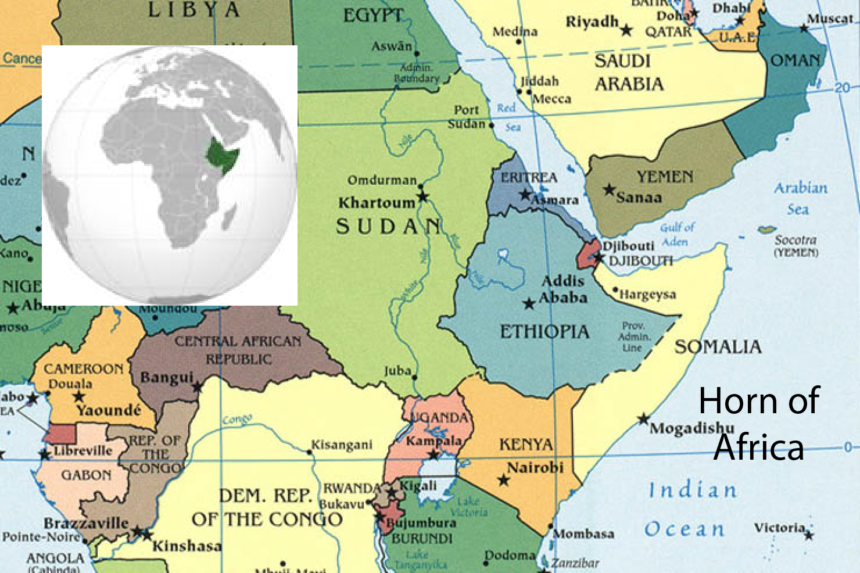AT ONE of the many peace conferences to try to end the bloody conflict in Sudan’s Darfur region, this one held in Libya, a succession of well-meaning European ministers trotted to the podium to pledge millions of dollars in aid money to those who agreed to choose peace over war. The idea was to encourage the various rebel groups, especially, to lay down their arms. But in the months afterwards, it was having the opposite effect. Groups of young men talked about starting yet more, ever smaller, armed groups, to provoke a bit of mayhem and consequently qualify for the cash that was on offer to pack in their fighting afterwards.
Such are the perverse incentives that abound in what Alex de Waal calls the “political marketplace” of the Horn of Africa. A veteran analyst of the region, Mr de Waal has used this concept for a number of years, but has now expanded his theories on the monetisation of African politics. In his new book, “The Real Politics of the Horn of Africa”, he argues that in this new era of business-politics in the region, political leaders “work on the assumption that human allegiance is tradable”. Especially in the violent context of east Africa, “political bargaining and political entrepreneurship can be seen naked, stripped of the flattering wardrobe of democracy, rule of law and state-building,” he writes.
It is a bleak vision. Mr de Waal describes this system as both “fascinating and repugnant”, and he offers plenty of evidence that buying allegiances is now a standard operating procedure for the local “political entrepreneurs”. The chapter on South Sudan, for instance, is unsparing. Many of the nascent country’s supporters in the West hoped that it could become a political and institutional rebuke to its neighbours, a rare outpost of democracy and pluralism, after it signed a peace deal in 2005 to end its long war with the north. Mr de Waal, however, shows how the ruling Sudan People’s Liberation Movement/Army (SPLM/A) spent what little money the country had on absorbing competing militias into its ranks, to cement political control, rather than on what UN agencies like to call “capacity-building”. Thus by independence in 2011, when the country split off from Sudan, the SPLA had 745 generals, and 80% of its defence spending went on wages and allowances. There had been almost no gains in public health, education, road-building or indeed anything else, but the SPLA payroll had swelled to over 230,000, plus an additional 90,000 or so police and wildlife rangers. The relatively large amounts of money sloshing around also encouraged large-scale corruption.
Or take Somalia. Here, Mr de Waal applies his political-marketplace model to piracy. It was a huge source of income for Somalis for a brief period in the mid-2000s. Although the world’s navies would like to think that it was only their aggressive patrolling of the sea-lanes that stamped out the menace, Mr de Waal suggests another reason, quoting a UN document to the effect that—thanks to that very patrolling—the pirates cleverly diversified, marketing their services as “consultants” and “experts” on counter-piracy as that business became more lucrative.
Although there may be no place for high ideals and political visions in Mr de Waal’s dystopia, he has less to say than he might about the other forces that have shaped African politics, such as ethnicity and religion. Here, “identity politics” is briefly subsumed into business-politics. But tribes and clans on their own still play a large role in determining loyalties, especially in countries like South Sudan.
Source: The Economist



Leave a Reply